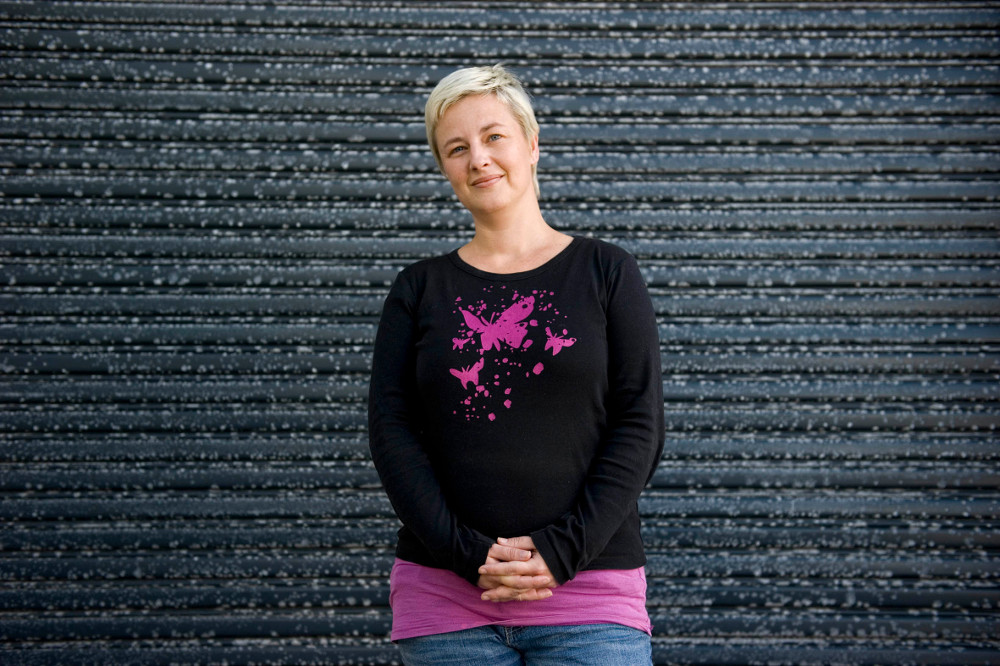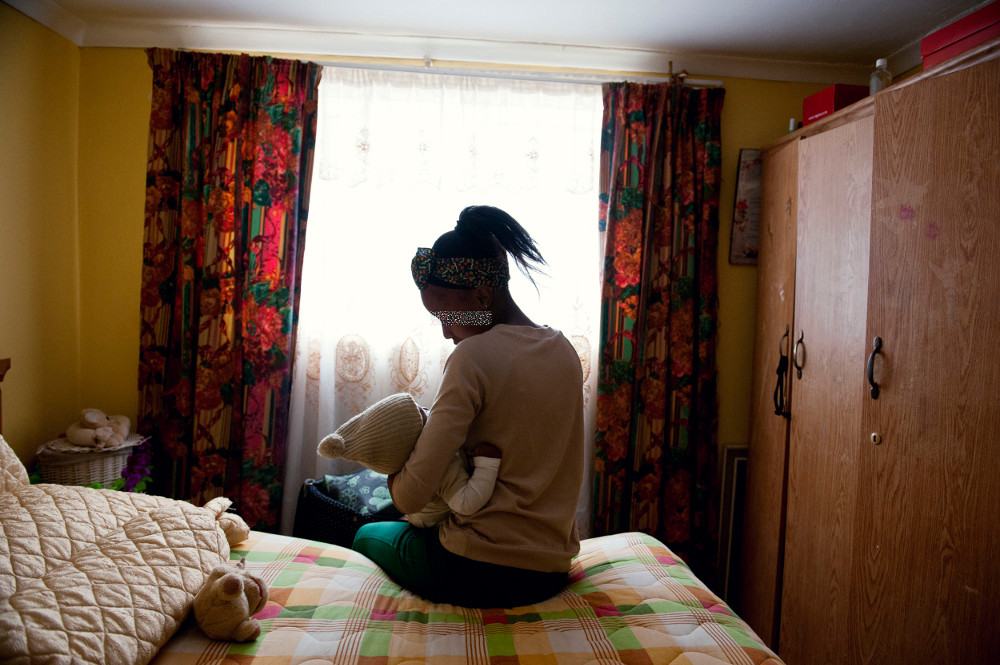Only one in three teenagers who fall pregnant continues her education after delivery, according to the United Nations Population Fund. This is despite the South African Schools Act, which says that "girls who become pregnant should not be denied access to education".
The UN estimates that 51 000 South African schoolgirls gave birth in 2011. The national health department reports that 8% of the women who give birth in public hospitals and clinics are less than 18 years old. Research shows younger women have a much higher chance of dying from pregnancy-related hypertension, accounting for more than a third of the country's maternal deaths.
"Falling pregnant has a devastating effect on a teenage girl's schooling," says Samantha Willan, a researcher from the University of KwaZulu-Natal. "Supporting teenage mothers to complete their education is the most powerful intervention we as society can make for both the teenage girl and her baby."
Bhekisisa, the M&G Centre for Health Journalism, spoke to three mothers about life after teenage pregnancy.
Tracy Engelbrecht
Tracy Engelbrecht was scared. Her breath was short and her palms sweaty. She was terrified.
"That was the worst night of my life; I still get nightmares about it," says Engelbrecht. "I came home from the hospital that night and called my mom in my room. I just had to blurt it out –'I'm pregnant'."
Engelbrecht (35) works at a software development company and is a single mom of two children; the first was conceived when she was only 14 years old.
"I was in grade nine and not what people generally believe to be a would-be teen mom. I was at the top of my class and part of a very stable, supportive and healthy family," she relays matter-of-factly. "I was sexually active and I was on the pill. I had used a condom before, but on that particular occasion I did not."
Engelbrecht says she immediately had a feeling that she was pregnant and resolved to tell her parents.
"My dad wasn't angry with me, he just cried and cried," says Engelbrecht, battling to keep her raw emotions at bay, her trembling voice betraying her bravado. "It was difficult to handle the fact that I had made him cry."
While Engelbrecht's relationship with her father remained unchanged, her mother found the news much harder to accept. "It was only on the morning that my son was born that she really came to terms with it."
In order to avoid being expelled, she and her parents resolved to keep her pregnancy a secret from the school so that she could complete the academic year. After giving birth to her son, she completed the rest of her secondary education at home, via correspondence. Engelbrecht and her boyfriend broke up while she was pregnant.
Years later Engelbrecht recorded her experience in an autobiography, The Girl Who Couldn't Say No, and now runs Young Mom Support, a group that meets twice a month in Masiphumelele and Driftsands in Cape Town. Each group has a turnout of about 20 teenage mothers.
"All of them want to go back to school, but not all of them can. They also struggle with affordable childcare; some of them are dealing with families that are not supportive of them going back to school," says Engelbrecht. "Overall, the biggest issue the moms I work with are facing is money. But often that was an issue for them even before their child was born."
She says that teenage mothers are usually thought to be bad parents, and are not afforded support. "Older mothers are told be kind and gentle with themselves and constantly reassured that they are doing great. The same sort of gentleness is not extended to teen moms.
"Teen moms are shamed and stigmatised by their communities and this has a huge impact on their parenting. Nobody needs that; nobody needs their mother to feel guilty and ashamed."
 Tracy Engelbrecht has formed support groups for young mothers in Masiphumelele and Driftsands in Cape Town. (David Harrison)
Tracy Engelbrecht has formed support groups for young mothers in Masiphumelele and Driftsands in Cape Town. (David Harrison)
Naledi Moleka*
"Society is very unfair towards teen moms. I was watching a show on TV the other day where a man being interviewed about teenage pregnancy said that when a teenager falls pregnant she should not be allowed to go to school, because she will make other girls fall pregnant," says Naledi Moleka, a matric pupil at Hospital School Pretoria, where most of the pupils have one thing in common: They all fell pregnant in their teens.
"It just happened. On that one time you think 'it won't happen to me', that's when it actually happens. It was the one time we didn't use protection. People like saying that after you have a baby you can't focus on school. But that is not true. Finding out that I was pregnant is what motivated me to focus on school. "
The sputtering infant lying in the car seat on the couch across the small family room from where Moleka is seated is the only evidence that the 17-year-old is a mother. "I was already four months pregnant when I found out. I had missed my periods a few times so I asked my best friend to come with me to our family doctor," she says, smiling shyly.
Moleka's secret was short-lived. At the end of the month, her mother received a medical aid statement which included a description of the recent doctor's visit, the blood tests and ultrasound scan that confirmed her pregnancy.
"Sometimes I wish I had told them [my family] earlier because I really enjoyed my pregnancy after they found out," she says, playfully tapping her feet on the tiled floor.
"Even when the baby kicks you have people to talk to. Before [they knew] I would just smile by myself and no one would know why. After everyone knew they were all very supportive, they would even make food for me, and when I craved stuff they would get it for me."
Moleka left her old school and enrolled at Hospital School Pretoria, where she would complete grade 11 and, eventually, her matric year.
"I had a lot of catching up to do. In grade 10 I lost focus and would not go to school and my marks were really bad," she says. "But at my new school the teachers give us all a lot of attention; failing is not an option."
Photos of Moleka's family members and her baby decorate the walls of the home she shares with her aunt in Mabopane, North of Pretoria. Having the baby, she says, was exactly what she needed to pull her life back together.
"Something bad would have probably happened to me if I continued living the life I was living. It was the fast life. I was 16 at the time, and I used to hang out with people who have cars. I used to go to parties every weekend and come home late," she shakes her head at the memory.
With the support of her boyfriend, who is the father of her baby, Moleka is able to go to school every day while her aunt looks after her baby, and she has already started applying to a number of nursing colleges.
"People forget that a teen mother didn't make the baby on her own, it takes two to tango. But then again, the father hasn't got 'I'm a father' printed on his forehead. That's why people just judge the pregnant mother."
 Thankful: Naledi Moleka* says her baby saved her from the 'fast life' of her teens. (Madelene Cronjé)
Thankful: Naledi Moleka* says her baby saved her from the 'fast life' of her teens. (Madelene Cronjé)
Irene van Niekerk
Irene van Niekerk was at home preparing for her daughter's athletics training session, when she received a call from her daughter's school – it was her daughter, "little" Irene.
"I didn't know what was going on. I remember saying to my husband 'if she got up to nonsense at school, she will get the hiding of her life'," says Van Niekerk, lighting up a cigarette.
"When we got to the principal's office I told her, 'Sussie, if you got up to shit, I will wring your neck'," she says, showing that she meant business with a thick finger held in front of her face. "Inside the office they told us to sit, but the social worker was sitting between me and Irene."
Wasting no time, the teacher said: "Ma'am, I just wanted to tell you that little Irene is three months pregnant."
At 15 years old, Irene was on the brink of success when she fell pregnant. The young girl from a Krugersdorp informal settlement made international headlines for her long-distance running feats, despite losing most of her toes after boiling water accidentally spilled on her when she was a toddler.
Last year Irene's story caught the attention of Skip Moen, an American pastor who had started a fundraiser to get Irene to the United States, where she would live with a family in Arizona and get further assistance with her athletics training. Months later the pastor announced on his website that "our efforts to bring her [Irene] to the USA were curtailed when she became pregnant".
"Everything we were trying to do to help Irene in her athletic career is finished now. She will stay in the camp, have her child and probably [become a statistic like] the thousands of girls just like her, who will never get out of the poverty of these places," Moen wrote on his website.
But his prediction will not come true if Irene and her mother, who is also her trainer, have anything to say about it. "I went back to school three weeks after having my baby. Three weeks after that I ran the 1 500m at school and came first," says Irene proudly.
"Sometimes I feel bad because [having my baby] had a negative effect on my running, but I know that I will run again." Irene is shy, keeping her eyes fixed on the ground in front of her as she speaks softly.
Teenage pregnancy comes with health risks – Irene suffered heavy bleeding and needed a Caesarean section. "Being a teen mom is hard. I go to school during the day, then I have training after school, then I still have homework to do and he cries a lot sometimes."
But her mother maintains that: "She [Irene] chose this and now she must live with it. During the day I take care of him, if he is difficult at night I step in to help so that she can get some rest."
With six months left to the national cross-country championships, Irene is confident that she will regain her fitness and speed in no time. "I want my child to have everything he wants. I know that I must run so that he can get what he needs," she says.
This is why Van Niekerk insists that her only daughter stays in school, even after having a baby.
"There are many teenage girls who get pregnant and leave school. What will become of their lives? Drugs, alcohol, clubs, sleeping with every Tom, Dick and Harry. Their lives are a tragedy," she says, lighting up another cigarette.
"I just pray that God gives Irene the wisdom to continue with her career even after she is finished with school. If she can carry on like this I know she can make it to the Olympics. She has it in her. She must just keep on."
*Not her real name
Read University of KwaZulu-Natal researcher Samantha Willan's online piece on the importance of education for teenage mothers.
